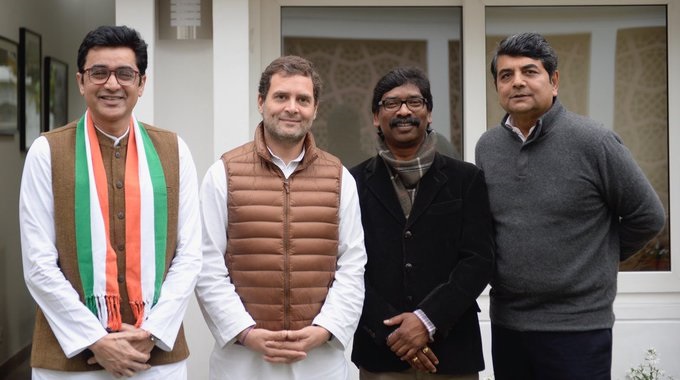Mission ‘social engineering’ falls flat on BJP’s face
By Jinka Nagaraju
Hyderabad: BJP’s defeat in Jharkhand is seen as the inevitable fallout of its failed attempt to change the tribal profile of the State by social engineering.
The government was attempting to change the operation of institutions or the behaviour of the voters in order to achieve a desired political goal.
After 2014, BJP has unleashed the process of social engineering in States where it was in power. The tribal-dominant Jharkhand was one such State.
The church holds considerable sway among the tribal communities. In its bid to suit its agenda, the BJP thought of polarisation among the tribals on religious grounds. The broader objective is to consolidate its position among non-Christian tribes and non-Muslim communities. The project, however, backfired as shown by Monday’s Assembly results. BJP won just 25 seats, a loss of 12 from the 2014 tally, in a House of 80.
The statehood for the tribal belt was achieved after a seven-decade protracted battle. To counter the Jharkhand movement, BJP floated its own version of Vananchal, which the saffron party failed to achieve. Finally, the Vajpayee government accorded Statehood to Jharkhand in 2000. While Chief Ministers invariably belonged to tribal communities, BJP deviated from the norm in 2014, when under new mascot Narendra Modi, the BJP aggressively started the process of social engineering.
Modi’s effective campaign had disrupted traditional voting behaviour, outside South India. He made many political slogans, including the one of social justice, redundant and snatched votes from every other political formation. Thus emboldened, it unleashed social engineering in Jharkhand.
Rather than having a tribal Chief Minister, the party pitch-forked Raghubar Das, an OBC leader from Teli community, onto the hot seat. But the move, too predictive given the nature of BJP politics under Modi, had not gone down well the tribal organizations.
Later, Das government started tinkering with laws meant to give protection to the lands owned by STs. To this effect in 2017, the Das government brought in two bills to amend the State’s two important Tenancy Acts, the Chota Nagpur Tenancy Act (CNTA) and the Santhal Parganas Tenancy Act (SPTA). The bills were meant to allow the commercial use of tribal lands.
The Congress and JMM opposed the move stating that they were anti-tribal and pro-corporate. The government had to put these bills on hold, following fierce resistance from opposition parties and tribals organizations.
Another bill that alienated the tribals from the BJP was the anti-conversion bill of 2017, which was passed into law in September. This move was mainly seen as an attempt to divide the tribal communities into religious groups.
The Jharkhand BJP, which was riding high on the Modi wave, was not in a position to decipher the message of several setbacks it had faced in the by-elections.
Between December 2015 and December this year, the State faced by-polls for seven Assembly seats. Though BJP could win only one seat, it never cared to gauze the intensity of the backlash its strategies generated among tribal communities.
Instead, the party relied heavily on the abilities of Das to engineer splits in other parties. Das successfully split JVM led by Babular Marandi to bring in six MLAs. This had further damaged the image of the party among the people. The latest results bear testimony to the alienation of the party from the people of the State.
If one observes the recent electoral debacles the party faced, one could easily detect a pattern emerging against the so-called social engineering. The BJP lost MP, Chhattisgarh and Rajasthan in 2018. It could not repeat its performance in Maharashtra.
In all these States, the BJP experimented with the idea of promoting non-dominant communities and ignoring the traditionally dominant castes like Marathas (Fadnavis-Brahmin), Jaats in Harayana (Manohar Lal Khattar- Punjabi Khatri) and tribals in Jharkhand. Only in Haryana, the BJP could return to power and that too with the help of a regional party with a non-traditional leader.